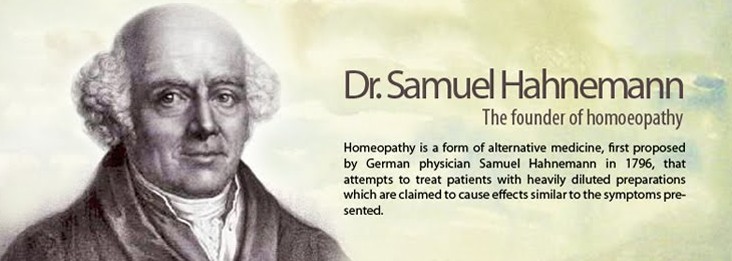What is homeopathy?
Homeopathy is a system of medicine which involves treating the individual with highly diluted substances, with the aim of triggering the body's natural system of healing. Based on their specific symptoms, a homeopath will match the most appropriate medicine to each patient.
Like with like
Homeopathy is based on the principle that you can treat "like with like", that is, a substance which causes symptoms when taken in large doses, can be used in small amounts to treat those same symptoms. For example, drinking too much coffee can cause sleeplessness and agitation, so according to this principle, when made into a homeopathic medicine, it could be used to treat people with these symptoms. This concept is sometimes used in conventional medicine, for example, the stimulant Ritalin is used to treat patients with ADHD, or small doses of allergens such as pollen are sometimes used to de-sensitise allergic patients. However, one major difference with homeopathic medicines is that substances are used in ultra high dilutions, which makes them non-toxic.
The science
Homeopathic medicines (which homeopaths call remedies) are prepared by specialist pharmacies using a careful process of dilution and succussion (a specific form of vigorous shaking).
As yet, science has not been able to explain the mechanism of action of ultra high dilutions in the body, but laboratory experiments have repeatedly demonstrated that homeopathically prepared substances cause biological effects. For example, the hormone thyroxine prepared as a homeopathic dilution can slow down the process of metamorphosis of tadpoles into frogs.
One theory is that during the production of a homeopathic medicine, the dilution and agitation processes cause an interaction between the original material (e.g. a plant such as Belladonna) and the water and alcohol it is mixed with. This creates tiny new structures (nanostructures) which are the "active ingredient" and remain present even when the sample has been diluted many, many times.2
There is also a growing body of research evidence that homeopathic medicines have clinical effects.
Its origins

Hahnemann was a doctor but gave up his practice because he was appalled at the poisonous side effects of most available medicine. He started experimenting and did something rather novel - he took some quinine, while perfectly healthy. He observed that the effect on him was identical to a malarial attack: alternating fever with heat and chills. This is where homeopathy started: a substance, given to a healthy individual, causes symptoms. If given to someone who suffers those symptoms, it will thus neutralise the sickness.
After his observations on quinine, Hahnemann went on to test hundreds of substances on himself and willing, healthy volunteers, used the tested substances for matching symptoms in his patients and all the while kept accounts of detailed observations. Of course, Hahnemann had an antecedent, still well-known today because all doctors still swear an oath to him to promise best medical practice: Hippocrates. Hippocrates stated that there were two laws of healing: the law of opposites (allopathy) and the law of similars (homeopathy). A Greek physician called Galen had laid these rules down in about 150 AD. Homeopathic theories are based on fixed principles of the Laws of Nature which do not change - unlike medical theories which are constantly changing! Homeopathy is both a science and an art.
Far from being ideas-based, this is completely evidence-based, empirical medicine an almost unique concept at the time. After some years of practicing like this, Hahnemann was still not satisfied. The substances he was using, while more effective than normal medical practice, were still having side effects. Or, if he reduced dosage too far, there was no effect. This is when he developed the concept of potentisation, the serial dilution that opponents of homeopathy deride.

